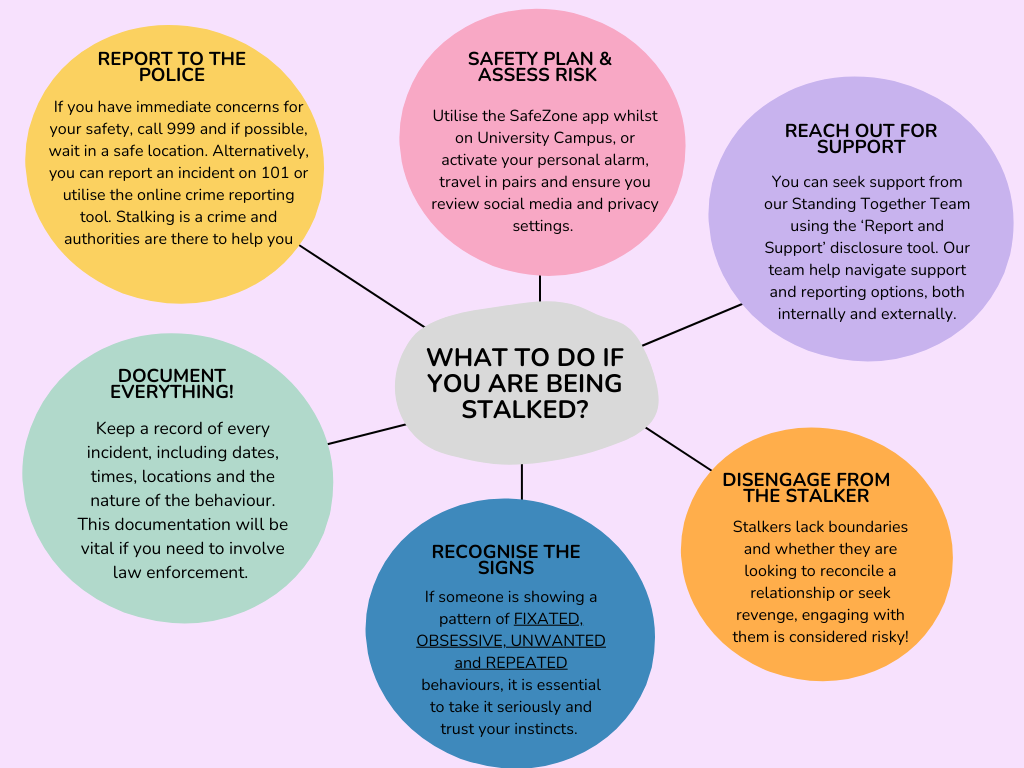National Stalking Awareness Week 2025
In April 2025, we observe National Stalking Awareness Week, a time to reflect on the profound impact stalking has on individuals and spread awareness about how we can protect victims, support survivors and work towards ending this harmful behaviour. Stalking is an invasion of privacy, safety and emotional well-being.
“Recognise the signs, Speak up and Stand Strong”
Social Media Handles
Standing Together will be active across the week on social media (X and Instagram)
Blog post with Prof Clive Ruggles – National Stalking Awareness Week
What is Stalking?
Stalking involves repeated and persistent behaviours, intended to harass, intimidate or control another person. Anyone can be a stalker, and anyone can be a victim; this includes a partner, family member, friends, or strangers. To be defined as stalking, the behaviour needs to be seen as FIXATED, OBSESSIVE, UNWANTED AND REPEATED.
It can occur in various forms, from physical following to cyberstalking, and it may involve unsolicited communication such as texts, emails, social media messages, or even appearing unexpectedly at the victim’s home, workplace, or other places they frequently visit. Stalkers’ tactics will focus on; surveillance, interference, life invasions and/or intimidation towards the victim. Often, the tactics of a stalker can be perceived with low risk, which impacts how a victim recognises the behaviour and responds to it.
Stalking is often romanticised in the media through popular TV shows and movies such as Netflix’s ‘You’ or ‘Twilight’. In ‘You’ – featuring Joe Goldberg – the obsessive behaviours lead him to stalk, manipulate, harm and even commit murder. In ‘Twilight’, Edward is observed in constant surveillance of Bella, including watching Bella sleep without her knowledge. The behaviours seen in such movies and TV shows are seen as endearing, a true testament of love. However, the representation of such behaviours can trivialise, romanticise and normalise stalking behaviours. This can undermine the seriousness of the issue, making it harder for victims and survivors to be taken seriously and for appropriate measures to be taken to address and prevent such behaviours.
The impact of Stalking
The effects of stalking can be devastating and leave long-lasting impacts on a victim's psychological well-being. Victims may experience a vast range of emotional, psychological and even physical symptoms as a result of the relentless fear, anxiety and distress caused by being stalked.


The Alice Ruggles Trust has produced a three-minute animated video to help raise awareness of stalking and what to do if you are being stalked
Link to Video - https://alicerugglestrust.org/stalking-video
Links and resources:
For support information internal - Report and Support - Support information - Website
For support information external - Report and Support - Support external - Website
